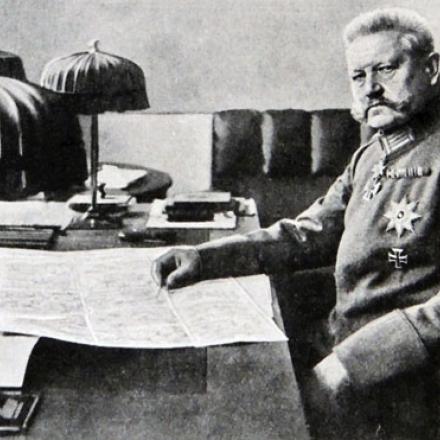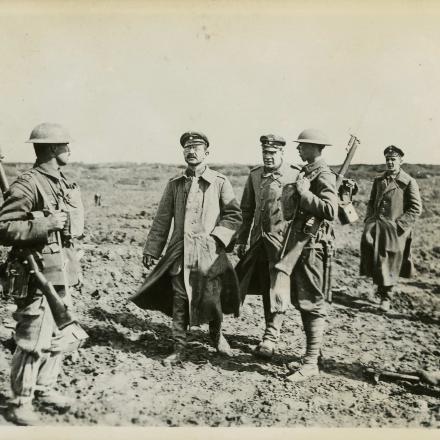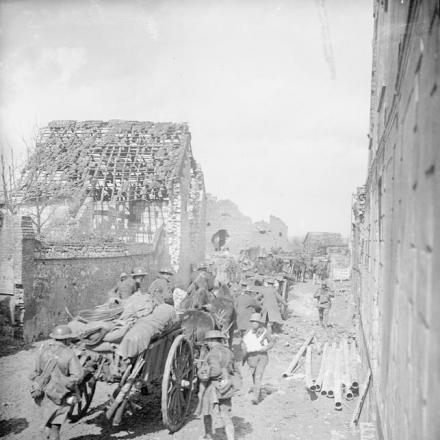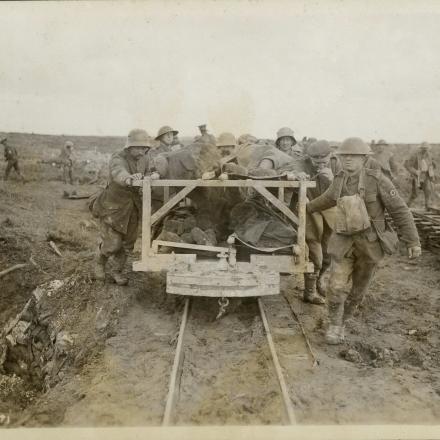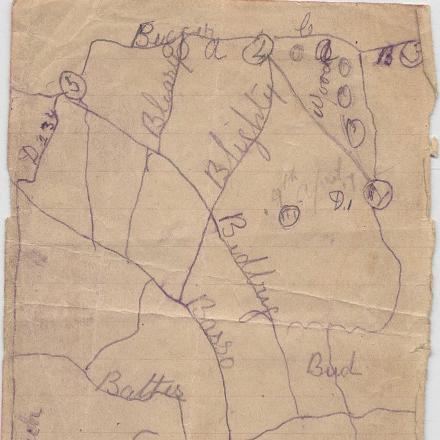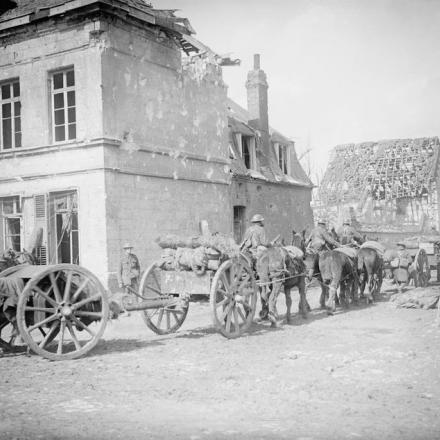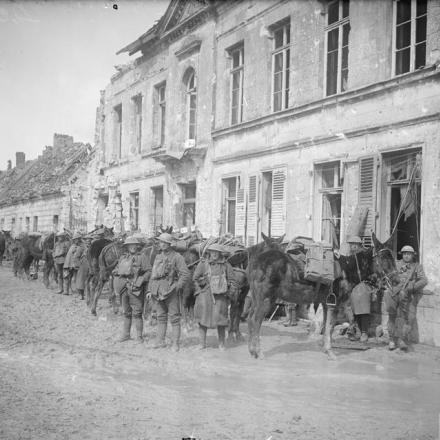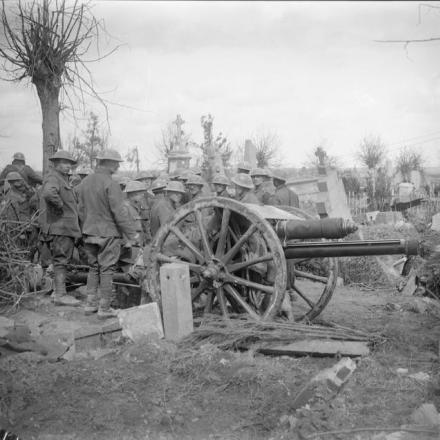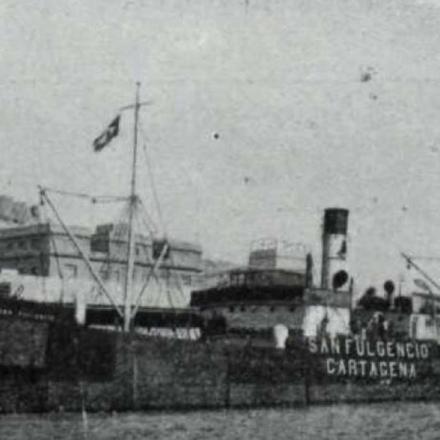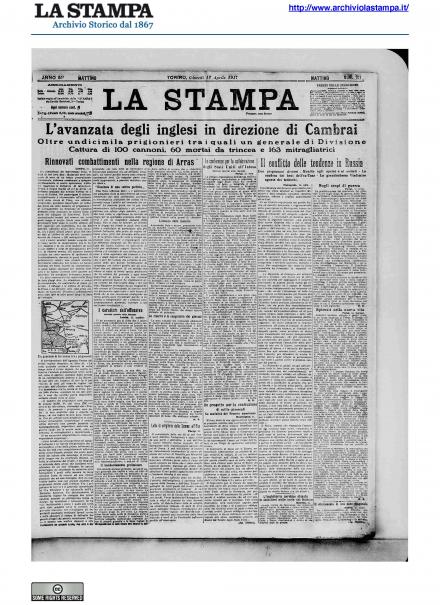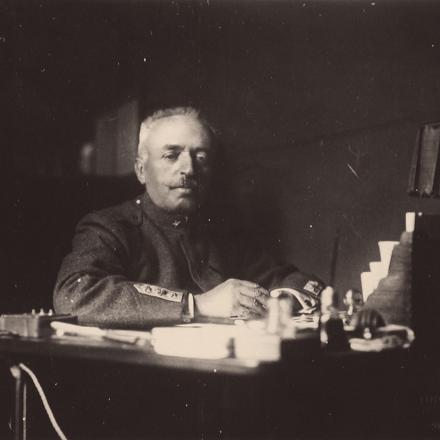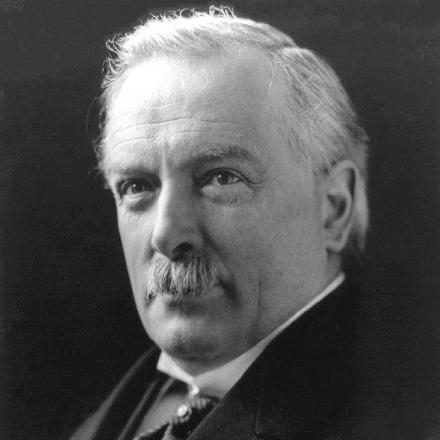Hindenburg: siamo soli
È un Hindenburg a 360° quello intervistato da La Vanguardia di Barcellona. Parla dei vari fronti, dello spirito tedesco, ma soprattutto di valutazioni e Stati Uniti: «Scegliendo la guerra sottomarina illimitata ci aspettavamo l’intervento americano e ne tenemmo conto; stimammo lieve il suo impatto. Quello che non ha potuto fare la flotta inglese, con l’appoggio di quelle Alleate, non potrà farlo neanche la Marina statunitense. […] Washington non potrà mantenere questa quantità di forniture all’Intesa ed equipaggiare un esercito di uno o due milioni di uomini allo stesso tempo. Nella migliore delle ipotesi, un Corpo di spedizione americano rilevante non potrà essere inviato prima di un anno, ma la guerra potrebbe decidersi prima, come dichiara anche il nemico. Abbiamo preso tutti i nostri provvedimenti. […] Oggi, a pochi mesi dall’inasprirsi della guerra sottomarina, posso dire che i nostri conti erano esatti. Noi non svalutiamo il pericolo, ma l’intervento americano ha eliminato tutte le incertezze. Compatti con i nostri alleati, sappiamo di essere soli al mondo».
Il 12 aprile gli Imperi centrali continuano a battere la via politica per risolvere la questione orientale: Adler e Scheidemann, leader socialisti austro-tedeschi, vanno a Stoccolma con l’idea di intavolare trattative con i rivoluzionari russi. Anche Pietrogrado guarda alla Svezia: il Ministro degli esteri Miljukov promette una sostanziale distensione nei rapporti russo-scandinavi, un un “buon vicinato” diverso dalle «tentazioni egemoniche zariste».
A Londra parla l’Ambasciatore americano Page: «Ci battiamo per un mondo in cui valga la pena di vivere. […] Gli Stati Uniti non sono soltanto un’agglomerazione di cento milioni di individui. Gli Stati Uniti sono di più, sono un sistema di società, una maniera di vivere in libertà, un ideale secondo cui ogni essere umano ha diritto allo sviluppo più completo e senza ostacoli». Ecco, magari bisognerebbe dirlo anche ai tanti Stati segregazionisti dell’Unione, dove il razzismo verso gli afro-americani e la discriminazione dello straniero sono una realtà costante, accettata e vergognosa.
Davide Sartori
GLI AVVENIMENTI
Politica e società
- Scheidemann e Adler, leader dei socialisti austro-tedeschi, insieme a un esponente del Centro tedesco, vanno a Stoccolma, sperando di poter intavolare trattative coi rivoluzionari russi.
- Gli spagnoli protestano con la Germania per l’affondamento del “San Fulgencio”.
- Il Costa Rica mette a disposizione degli U.S.A. le proprie acque territoriali e i porti.
- Manifestazioni a Londra per l’entrata in guerra degli U.S.A.
Fronte occidentale
- I britannici avanzano a nord di Vimy Ridge e verso Lens, prendendo “the Pimple” e Bois en Hache. A sud della linea Arras-Cambrai prendono Héninel e Wancourt.
Fronte asiatico ed egiziano
- I turchi si ritirano verso Deli Abbas (fra il Tigri e il Diyala).
Dal fronte italiano
REGIO ESERCITO ITALIANO - COMANDO SUPREMO
BOLLETTINO DI GUERRA N. 686 - 12 APRILE 1917 - ORE 18:00
Normali azioni delle artiglierie lungo tutta la fronte. Iersera, ad oriente di Vertoiba, il nemico, dopo violenta preparazione di fuoco d' artiglieria e bombarde, riuscì ad irrompere momentaneamente in una nostra trincea avanzata.
Accorsi prontamente nostri rincalzi, fu ricacciato ed abbandonò nelle nostre mani qualche prigioniero, armi e materiale di guerra.
Generale CADORNA
Documenti
David Lloyd George
British Prime Minister David Lloyd George's
Address to the American Club, London, on America's Entry into the War, 12 April 1917
I am in the happy position of being, I think, the first British Minister of the Crown who, speaking on behalf of the people of this country, can salute the American Nation as comrades in arms.
I am glad; I am proud. I am glad not merely because of the stupendous resources which this great nation will bring to the succour of the alliance, but I rejoice as a democrat that the advent of the United States into this war gives the final stamp and seal to the character of the conflict as a struggle against military autocracy throughout the world.
That was the note that ran through the great deliverance of President Wilson. It was echoed, Sir, in your resounding words today. The United States of America have the noble tradition, never broken, of having never engaged in war except for liberty. And this is the greatest struggle for liberty that they have ever embarked upon.
I am not at all surprised, when one recalls the wars of the past, that America took its time to make up its mind about the character of this struggle. In Europe most of the great wars of the past were waged for dynastic aggrandizement and conquest.
No wonder when this great war started that there were some elements of suspicion still lurking in the minds of the people of the United States of America. There were those who thought perhaps that Kings were at their old tricks - and although they saw the gallant Republic of France fighting, they some of them perhaps regarded it as the poor victim of a conspiracy of monarchical swashbucklers.
The fact that the United States of America has made up its mind finally makes it abundantly clear to the world that this is no struggle of that character, but a great fight for human liberty.
They naturally did not know at first what we had endured in Europe for years from this military caste in Prussia. It never has reached the United States of America. Prussia was not a democracy. The Kaiser promises that it will be a democracy after the war. I think he is right. But Prussia not merely was not a democracy. Prussia was not a State - Prussia was an army. It had great industries that had been highly developed; a great educational system; it had its universities, it had developed its science.
All these were subordinate to the one great predominant purpose, the purpose of all - a conquering army which was to intimidate the world. The army was the spear-point of Prussia; the rest was merely the shaft.
That was what we had to deal with in these old countries. It got on the nerves of Europe. They knew what it all meant. It was an army that in recent times had waged three wars, all of conquest, and the unceasing tramp of its legions through the streets of Prussia, on the parade grounds of Prussia, had got into the Prussian head.
The Kaiser, when he witnessed on a grand scale his reviews, got drunk with the sound of it. He delivered the law to the world as if Potsdam was another Sinai, and he was uttering the law from the thunder clouds.
But make no mistake. Europe was uneasy. Europe was half intimidated. Europe was anxious. Europe was apprehensive. We knew the whole time what it meant. What we did not know was the moment it would come.
This is the menace, this is the apprehension from which Europe has suffered for over fifty years. It paralyzed the beneficent activity of all States, which ought to be devoted to concentrating on the well-being of their peoples. They had to think about this menace, which was there constantly as a cloud ready to burst over the land.
No one can tell except Frenchmen what they endured from this tyranny, patiently, gallantly, with dignity, till the hour of deliverance came. The best energies of domestic science had been devoted to defending itself against the impending blow.
France was like a nation which put up its right arm to ward off a blow, and could not give the whole of her strength to the great things which she was capable of. That great, bold, imaginative, fertile mind, which would otherwise have been clearing new paths for progress, was paralyzed.
That is the state of things we had to encounter.
The most characteristic of Prussian institutions is the Hindenburg line. What is the Hindenburg line? The Hindenburg line is a line drawn in the territories of other people, with a warning that the inhabitants of those territories shall not cross it at the peril of their lives. That line has been drawn in Europe for fifty years.
You recollect what happened some years ago in France, when the French Foreign Minister was practically driven out of office by Prussian interference. Why? What had he done?
He had done nothing which a Minister of an independent State had not the most absolute right to do. He had crossed the imaginary line drawn in French territory by Prussian despotism, and he had to leave.
Europe, after enduring this for generations, made up its mind at last that the Hindenburg line must be drawn along the legitimate frontiers of Germany herself. There could be no other attitude than that for the emancipation of Europe and the world.
It was hard at first for the people of America quite to appreciate that Germany had not interfered to the same extent with their freedom, if at all. But at last they endured the same experience as Europe had been subjected to. Americans were told that they were not to be allowed to cross and re-cross the Atlantic except at their peril. American ships were sunk without warning. American citizens were drowned, hardly with an apology - in fact, as a matter of German right.
At first America could hardly believe it. They could not think it possible that any sane people should behave in that manner. And they tolerated it once, and they tolerated it twice, until it became clear that the Germans really meant it. Then America acted, and acted promptly.
The Hindenburg line was drawn along the shores of America, and the Americans were told they must not cross it. America said, "What is this?" Germany said, "This is our line, beyond which you must not go," and America said, "The place for that line is not the Atlantic, but on the Rhine and we mean to help you to roll it up."
There are two great facts which clinch the argument that this is a great struggle for freedom. The first is the fact that America has come in. She would not have come in otherwise. The second is the Russian revolution.
When France in the eighteenth century sent her soldiers to America to fight for the freedom and independence of that land, France also was an autocracy in those days. But Frenchmen in America, once they were there - their aim was freedom, their atmosphere was freedom, their inspiration was freedom. They acquired a taste for freedom, and they took it home, and France became free.
That is the story of Russia. Russia engaged in this great war for the freedom of Serbia, of Montenegro, of Bulgaria, and has fought for the freedom of Europe. They wanted to make their own country free, and they have done it.
The Russian revolution is not merely the outcome of the struggle for freedom. It is a proof of the character of the struggle for liberty, and if the Russian people realize, as there is every evidence they are doing, that national discipline is not incompatible with national freedom - nay, that national discipline is essential to the security of national freedom - they will, indeed, become a free people.
I have been asking myself the question, Why did Germany, deliberately, in the third year of the war, provoke America to this declaration and to this action - deliberately, resolutely?
It has been suggested that the reason was that there were certain elements in American life, and they were under the impression that they would make it impossible for the United States to declare war. That I can hardly believe. But the answer has been afforded by Marshal von Hindenburg himself, in the very remarkable interview which appeared in the press.
He depended clearly on one of two things. First, that the submarine campaign would have destroyed international shipping to such an extent that England would have been put out of business before America was ready.
According to his computation, America cannot be ready for twelve months. He does not know America. In the alternative, that when America is ready, at the end of twelve months, with her army, she will have no ships to transport that army to the field of battle. In von Hindenburg's words, "America carries no weight." I suppose he means she has no ships to carry weight. On that, undoubtedly they are reckoning.
Well, it is not wise always to assume that even when the German General Staff, which has miscalculated so often, makes a calculation it has no ground for it. It therefore behoves the whole of the Allies, Great Britain and America in particular, to see that that reckoning of von Hindenburg is as false as the one he made about his famous line, which we have broken already.
The road to victory, the guarantee of victory, the absolute assurance of victory is to be found in one word - ships; and a second word - ships; and a third word - ships. And with that quickness of apprehension which characterizes your nation, Mr. Chairman, I see that they fully realize that, and today I observe that they have already made arrangements to build one thousand 3,000-tonners for the Atlantic.
I think that the German military advisers must already begin to realize that this is another of the tragic miscalculations which are going to lead them to disaster and to ruin. But you will pardon me for emphasizing that. We are a slow people in these islands - slow and blundering - but we get there. You get there sooner, and that is why I am glad to see you in.
But may I say that we have been in this business for three years? We have, as we generally do, tried every blunder. In golfing phraseology, we have got into every bunker. But we have got a good niblick. We are right out on the course.
But may I respectfully suggest that it is worth America's while to study our blunders, so as to begin just where we are now and not where we were three years ago? That is an advantage. In war, time has as tragic a significance as it has in sickness. A step which, taken today, may lead to assured victory, taken tomorrow may barely avert disaster. All the Allies have discovered that.
It was a new country for us all. It was trackless, mapless. We had to go by instinct. But we found the way, and I am so glad that you are sending your great naval and military experts here, just to exchange experiences with men who have been through all the dreary, anxious crises of the last three years.
America has helped us even to win the battle of Arras. Do you know that these guns which destroyed the German trenches, shattered the barbed wire - I remember, with some friends of mine whom I see here, arranging to order the machines to make those guns from America. Not all of them - you got your share, but only a share, a glorious share.
So that America has also had her training. She has been making guns, making ammunition, giving us machinery to prepare both; she has supplied us with steel, and she has got all that organization and she has got that wonderful facility, adaptability, and resourcefulness of the great people which inhabits that great continent.
It was a bad day for military autocracy in Prussia when it challenged the great Republic of the West. We know what America can do, and we also know that now she is in it she will do it. She will wage an effective and successful war.
There is something more important. She will insure a beneficent peace. I attach great importance - and I am the last man in the world, knowing for three years what our difficulties have been, what our anxieties have been, and what our fears have been - I am the last man to say that the succour which is given to us from America is not something in itself to rejoice in, and to rejoice in greatly.
But I don't mind saying that I rejoice even more in the knowledge that America is going to win the right to be at the conference table when the terms of peace are being discussed. That conference will settle the destiny of nations - the course of human life - for God knows how many ages.
It would have been tragic for mankind if America had not been there, and there with all the influence, all the power, and the right which she has now won by flinging herself into this great struggle.
I can see peace coming now - not a peace which will be the beginning of war; not a peace which will be an endless preparation for strife and bloodshed; but a real peace. The world is an old world. It has never had peace. It has been rocking and swaying like an ocean, and Europe - poor Europe! - has always lived under the menace of the sword.
When this war began two-thirds of Europe were under autocratic rule. It is the other way about now, and democracy means peace. The democracy of France did not want war; the democracy of Italy hesitated long before they entered the war; the democracy of this country shrank from it - shrank and shuddered - and never would have entered the cauldron had it not been for the invasion of Belgium.
The democracies sought peace; strove for peace. If Prussia had been a democracy there would have been no war. Strange things have happened in this war. There are stranger things to come, and they are coming rapidly.
There are times in history when this world spins so leisurely along its destined course that it seems for centuries to be at a standstill; but there are also times when it rushes along at a giddy pace, covering the track of centuries in a year.
Those are the times we are living in now. Today we wage the most devastating war earth has ever seen; tomorrow - perhaps not a distant tomorrow - war may be abolished forever from the category of human crimes.
This may be something like the fierce outburst of winter which we are now witnessing before the complete triumph of the sun. It is written of those gallant men who won that victory on Monday - men from Canada, from Australia, and from this old country, which has proved that in spite of its age it is not decrepit - it is written of those gallant men that they attacked with the dawn - fit work for the dawn! - to drive out of forty miles of French soil those miscreants who had defiled it for three years. "They attacked with the dawn." Significant phrase!
The breaking up of the dark rule of the Turk, which for centuries has clouded the sunniest land in the world, the freeing of Russia from an oppression which has covered it like a shroud for so long, the great declaration of President Wilson coming with the might of the great nation which he represents into the struggle for liberty are heralds of the dawn.
"They attacked with the dawn," and these men are marching forward in the full radiance of that dawn, and soon Frenchmen and Americans, British, Italians, Russians, yea, and Serbians, Belgians, Montenegrins, will march into the full light of a perfect day.
Source: Source Records of the Great War, Vol. V, ed. Charles F. Horne, National Alumni 1923
